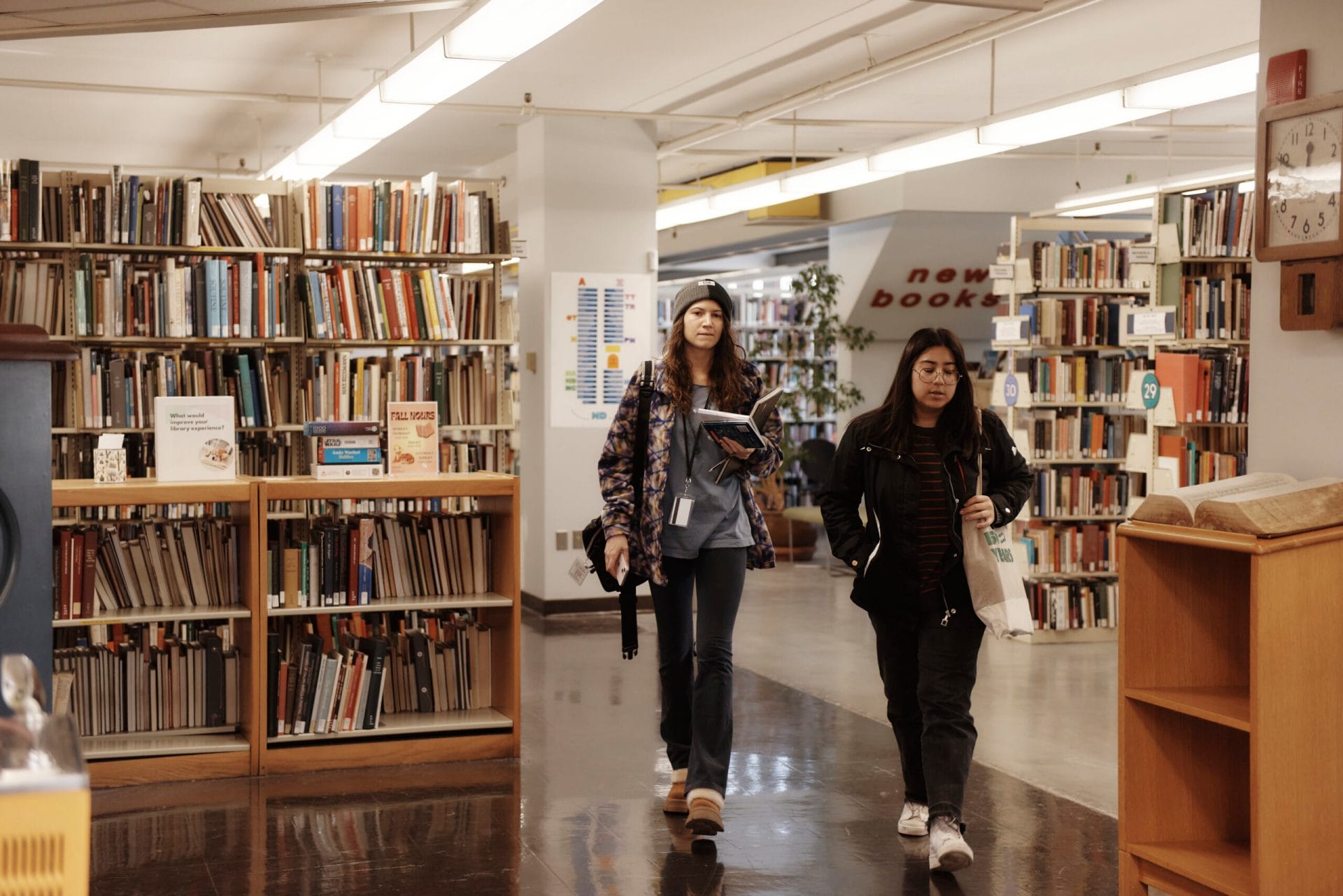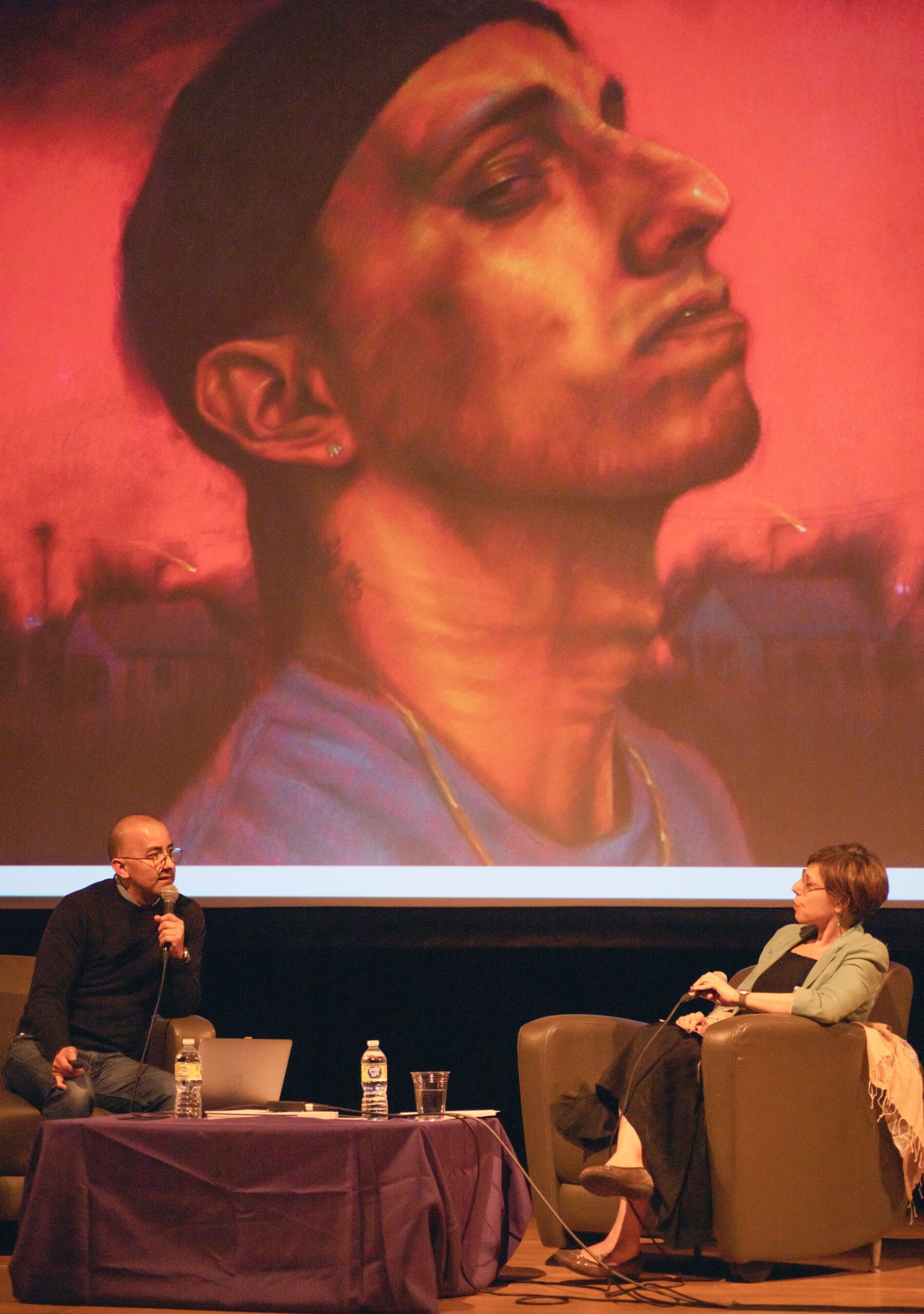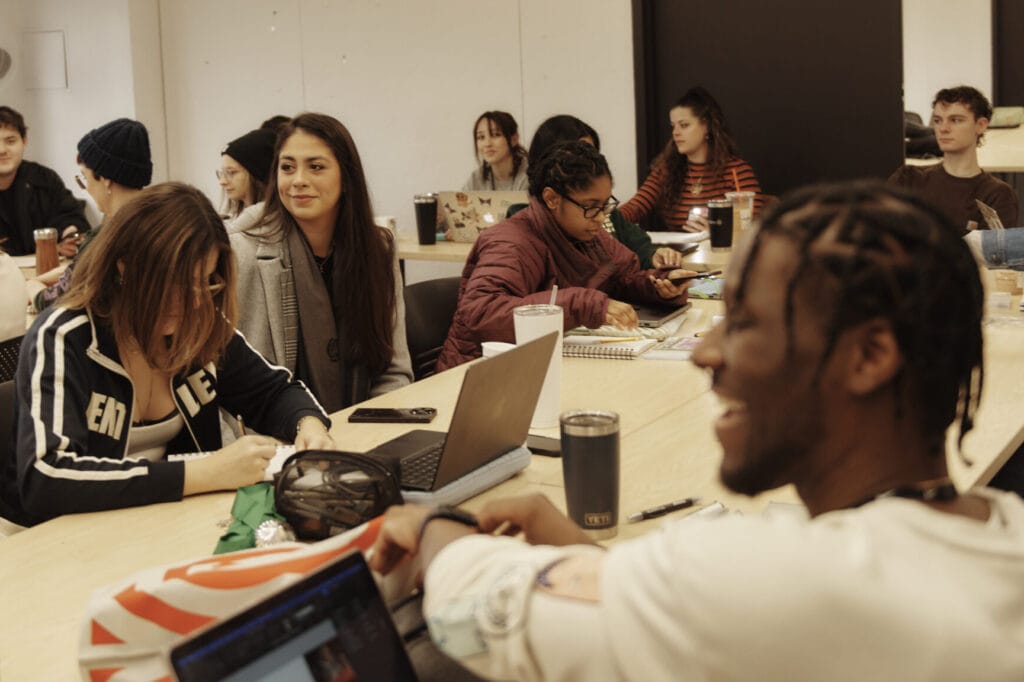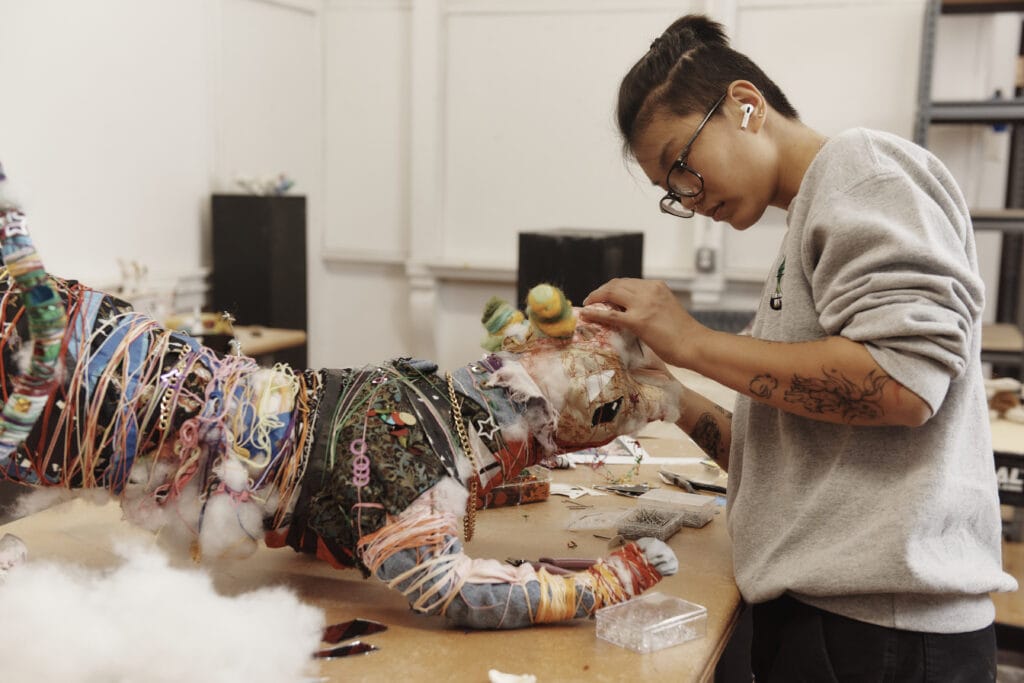Humanities

In Humanities, students grow the knowledge, tools, skills, and habits to engage in community and imagine new possibilities through their creative practice.
In Humanities classes (in literature, film studies, history, music and philosophy, among other fields), students learn the core skills of critical thinking, creative and critical writing, self-reflection, empathetic observation, presentation skills, historical methods, and rigorous research fueled by curiosity.
By cultivating these core skills, students learn to adjust to new cultures and perspectives; to tell new stories and give voice to visions relevant to their communities; and to cultivate agency in every aspect of the creative process.


Every MassArt degree program includes at least eight general education courses offered in the Humanities and Integrative Science and Biological Arts (ISBA) departments, designed to provide context, insight, critical skills and informed perspectives for students pursuing the arts.
First Year seminar is offered in Humanities, Integrative Sciences and Biological Arts, and History of Art. It is a rigorous, supportive and immersive whole-person learning experience designed to ground MassArt’s artists and designers in the skills, knowledge and life habits necessary to thrive in their foundation year at MassArt.
Our writing courses teach the craft of coherent, purposeful, and compelling written text from first draft to final manuscript. In these courses students develop an authentic artistic voice by writing an artist’s statement, revising a grant application, experimenting with cinepoetry, and reading stories in translation.
In literature and film criticism courses students engage with texts from multiple fields, genres and cultural traditions, discern complex layers of idea and meaning in verbal, written or cinematic art, and forge a personal canon relevant to their creative life.
In history courses students learn the historian’s craft: they differentiate, evaluate, and contextualize primary and secondary sources, examine the deep connections between the past and present, and practice historical methods that emphasize transcultural and global perspectives.
In our humanities electives in music and musicology, gender studies and philosophy (among others), students explore aesthetic, cultural and ethical questions relevant to their place in the world. They may study music from around the world and the US, or examine their artistic freedom in a democracy.
In Humanities, students grow the knowledge, tools, skills, and habits to engage in the community and imagine new possibilities through their creative practices. In our courses, students:
- Cultivate close observation, self-reflection, and empathic and critical inquiry to understand the world and their place in it.
- Attend to the exploration and expression of craft, methods, form, purpose, and audience.
- Communicate ideas with honesty, respect for other viewpoints, and a commitment to the common good.
- Engage in responsible, curiosity-driven research to broaden their perspective and deepen the meaning of their work.
- Contextualize what they learn and create across historical, cultural, and global frameworks.
- Make their best work through revision, experimentation, and community-oriented critiques.
- Forge connections across fields of knowledge and with peers from all majors.
- Reflect on their intellectual, creative, and emotional growth and its impact across the college and on the community.
I believe in the power of differences as a space of connection, understanding, and mutual growth as catalysts of the learning process.Marika Preziuso

Learn about Creative Counterpoints, our annual series devoted to the intersections of creativity and difference as investigated by visual artists, writers, public intellectuals, and other culture makers.
Learn more









